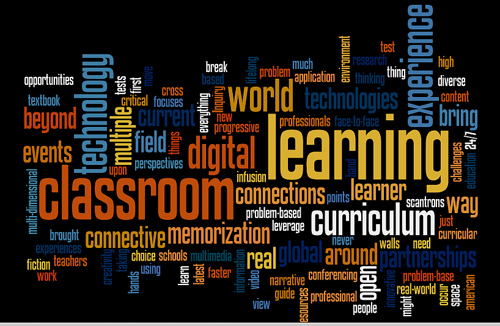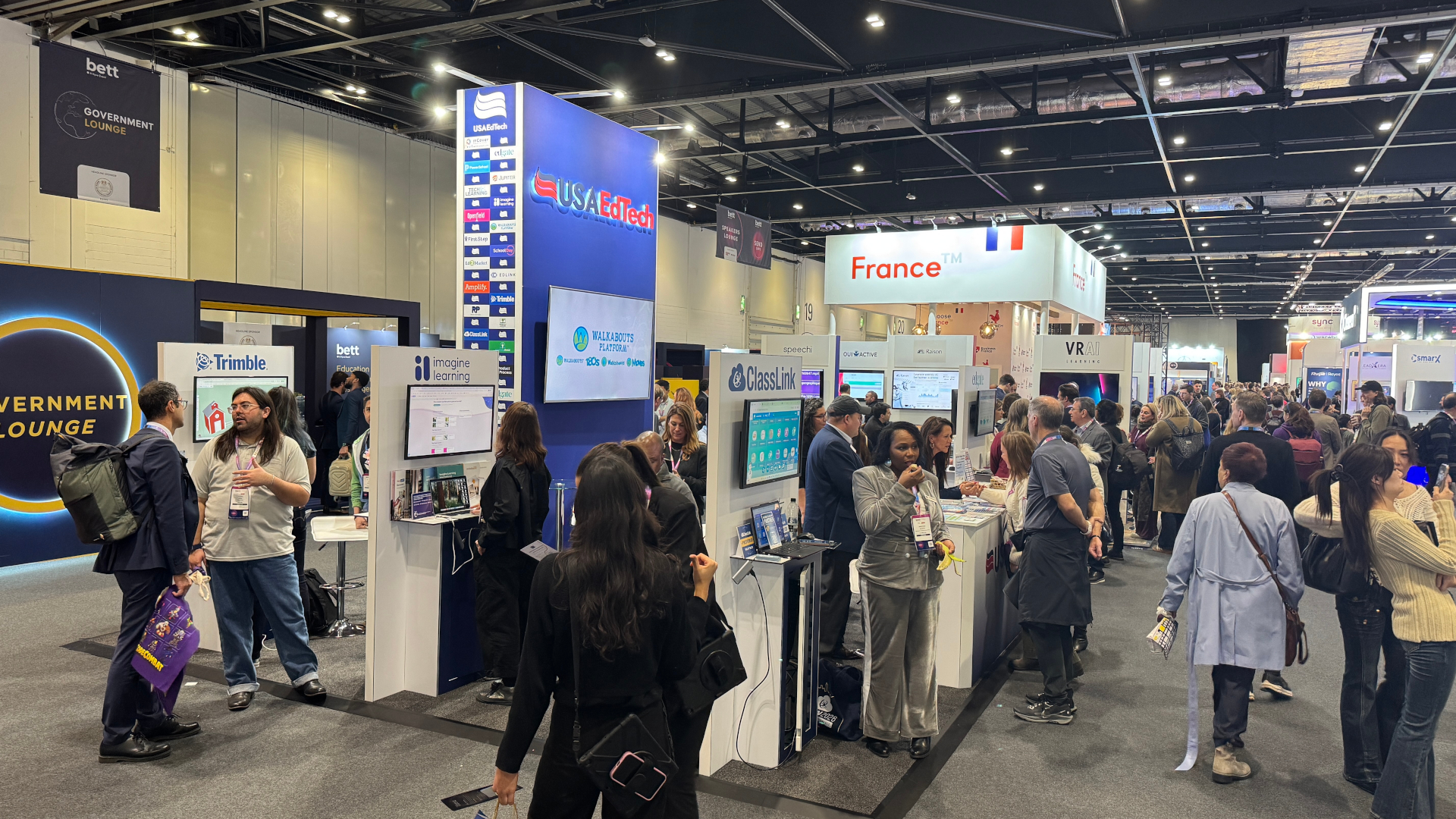Passionate Voices by Ryan Bretag

I'm always excited when I have the opportunity to sit down and just listen to students discuss education. It is clear that they simply get it and should be a critical resource in the improvement of the educational environment.
Today, I had one of those great opportunities to facilitate a discussion with a cross-section of the student body that focused on two questions: what does it mean to be well-educated in the 21st Century and therefore, what should teaching and learning look like in the 21st Century to help develop said person.
While I'm still ruminating on the student discussion, a few things stand out in their thinking as illustrated below:

Learning - Something - Learning
First and foremost, the students wanted to talk about learning. In fact, each discussion point started and ended with the focus on learning. For example, the students talked about creating a learning environment that was about learning not just memorization. To do this, they wanted to seek out partnerships both locally and globally in order to build connections that would foster a "learning to learn" movement where students are learning for learning, open to learning, and innovative.
Current and Diverse Curriculum
Central to this discussion about learning was the curriculum. For them, there was a strong desire to get and remain current with the curriculum materials while also making sure it is coming from diverse perspectives. Clearly, textbooks were not fast enough nor diverse enough in their eyes. They longed for ways to interact with materials that were updated frequently and offered a wealth of perspectives. In fact, a good portion felt there was a need to move beyond the textbook because "information changes to rapidly" for textbooks to be the main source in the classroom.
Tools and ideas to transform education. Sign up below.
Along with this, information and resources needed to come in a variety of formats if the curriculum was going to remain progressive and current: narrative, fiction, digital, multimedia, and non-fiction. It was also important to have a diverse curriculum that crossed content boundaries. This led to many speaking about the value of making global connections, interacting with professionals (biologists, authors, etc), and breaking down the walls of the classroom.
Students as Pre-Professionals
Finally, it was clear that students that when discussing learning, the concept of teaching and learning in the 21st Century should focus on students as pre-professionals. To do this, the classroom needed to focus on inquiry and problem-base learning, real world experiences, research opportunities, and field work. As well, the experiences should engage them with challenges that force student application, creativity, and critical thinking.
In fact, the idea of students engaging as professionals in training was a definite theme of this discussion as they discussed hands-on field experience that engaged them in first hand exposure.
Where is all the technology?
The concept of technology was really an after thought, it seemed, for many of them. This wasn't because it lacked importance but a belief, when asked, that technology was basically a given. In other words, technology was a key part for making all of the above happen but it was something they wanted to be transparent within the classroom, a multi-dimensional learning space they wanted to be 24/7/7.
Through connective technologies and participatory media, students as pre-professionals, a current and diverse curriculum, and learning could occur to create a well-educated person capable of success in the 21st Century. However, it was made clear with plenty of agreement that technology alone will do very little and that it should never be the only thing, done for its own sake.
Blessed
Days like this remind me of just how blessed and fortunate we are to be educators! Days like this remind me that to continue creating the types of learners that will be successful, we must think past yesterday and beyond today by leveraging the voices of students! After all, the focus remains on creating PASSIONATE learners and individuals that are capable of reaching their potential. And, when you have conversations and discussions with students, you realize just important it is to have that focus. So I ask you when the last time you engaged your students in these conversations? What are they saying? Is it similar? different? What do we do with their voices, their ideas?
